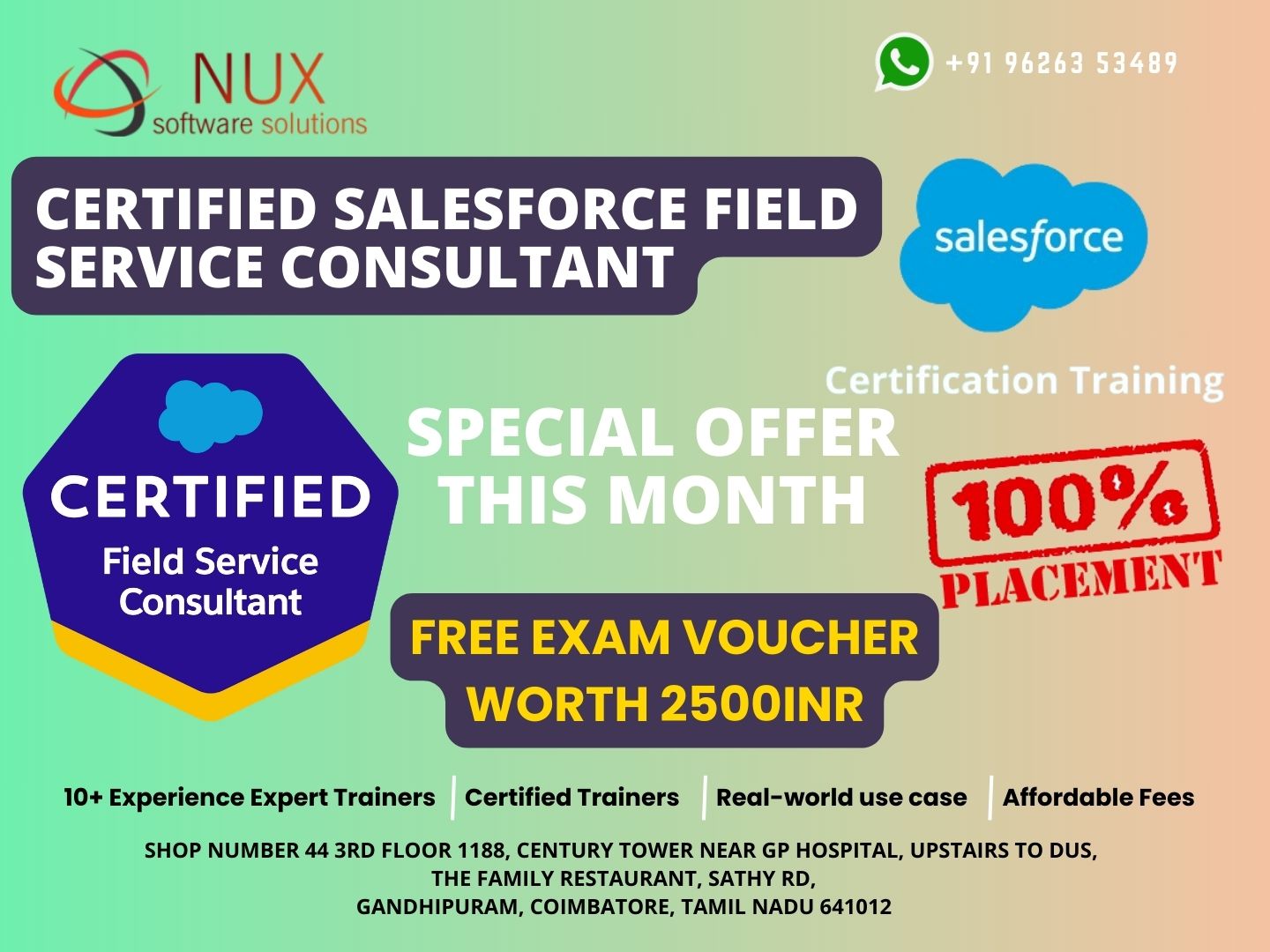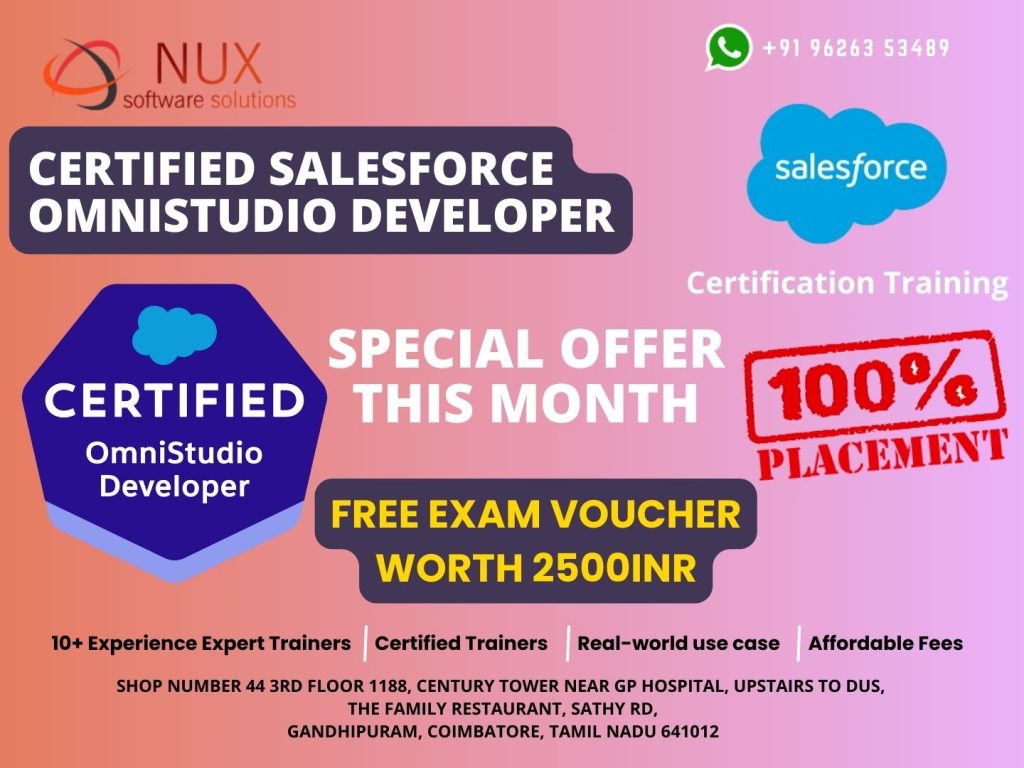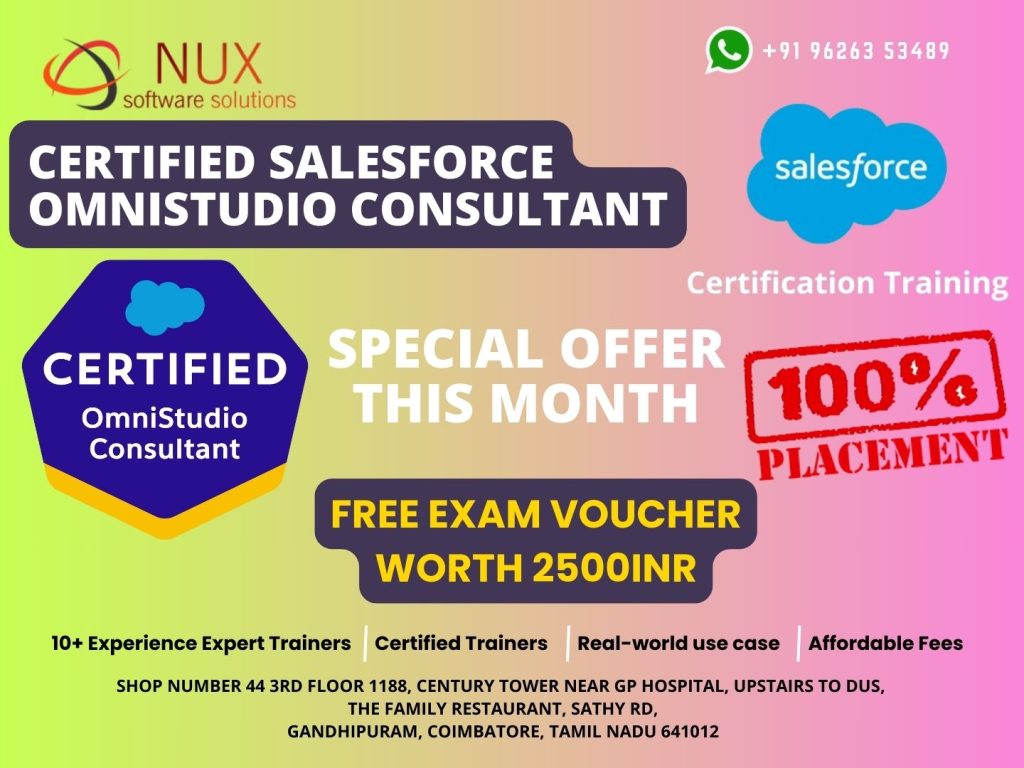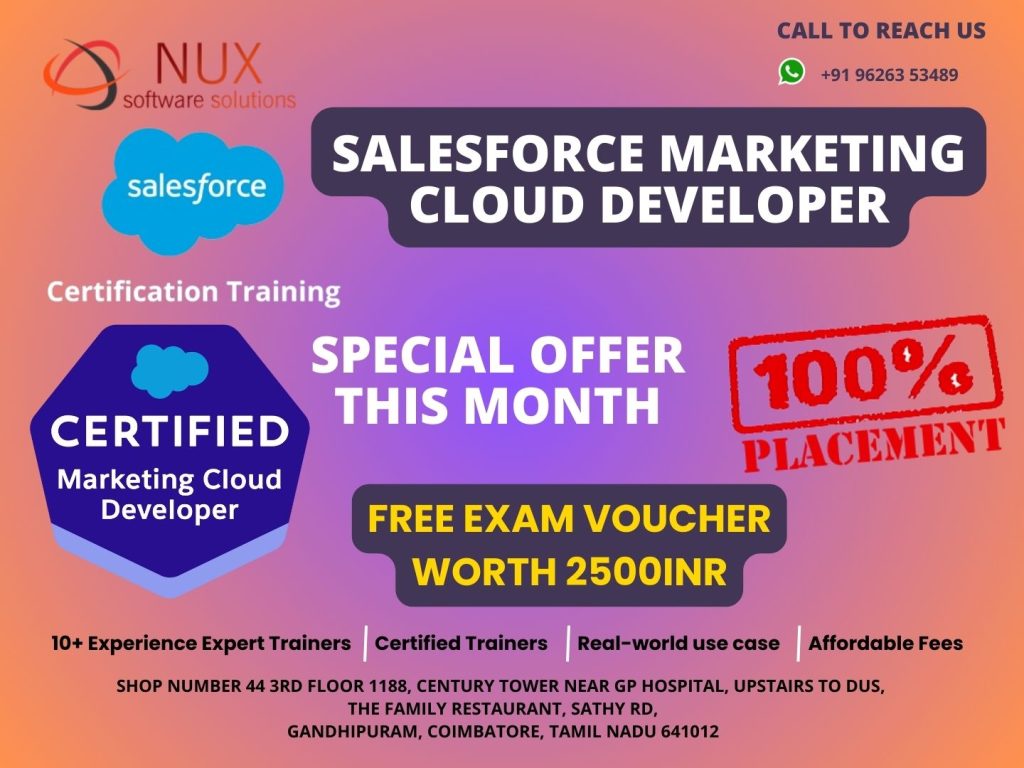Salesforce Certified Field Service Consultant Training and certification in Coimbatore

Course Summary
The Salesforce Certified Field Service Consultant credential is designed for professionals who specialize in deploying and optimizing Field Service Lightning (FSL) solutions. This training prepares participants to design scalable, efficient, and user-friendly field service systems using Salesforce, focusing on resource optimization, scheduling, asset tracking, mobile workforce enablement, and service operations automation.
Learners will gain comprehensive knowledge of FSL architecture, configuration, and best practices aligned with the exam blueprint, while developing hands-on expertise through practical scenarios and real-time case studies.
Why Choose This Course
Field Service is a critical capability in industries like utilities, telecom, healthcare, and manufacturing. This course helps you:
Become a trusted Salesforce Consultant for Field Service implementations
Learn to design effective field operations using Salesforce Field Service (FSL)
Prepare thoroughly for the Salesforce Field Service Consultant exam
Gain hands-on practice with scheduling policies, work rules, mobile app configuration, and optimization
Open career opportunities with Salesforce partners, ISVs, and enterprise clients
Who Should Enroll
This course is ideal for:
Salesforce Admins and Consultants working with field operations teams
Business analysts or technical architects designing Salesforce Service solutions
Professionals supporting industries with large field service operations
Individuals preparing for the Salesforce Field Service Consultant certification exam
Organizations looking to optimize technician scheduling, mobile dispatch, and service efficiency
Skills You Will Gain
Designing and deploying Field Service Lightning (FSL) architecture
Configuring service appointments, work orders, and maintenance plans
Optimizing dispatcher consoles, service territories, and travel time
Managing FSL mobile workforce deployment and mobile app customization
Applying work rules, scheduling policies, and performance reporting
Career Benefits
After completing this course, you will:
Be prepared to earn the Salesforce Certified Field Service Consultant credential
Qualify for roles like Field Service Consultant, Salesforce Solution Architect, or Implementation Specialist
Gain specialized skills that are in high demand across service-based industries
Enhance your résumé as a Salesforce expert in enterprise service automation
Boost your potential to work with Salesforce Consulting Partners and global clients
Lead the Future of Service with Salesforce Field Service Expertise
Optimize workforce performance, streamline service delivery, and elevate customer satisfaction with certified Salesforce Field Service solutions.
Start your journey with Salesforce Field Service training at Linux Training Center, Coimbatore.



